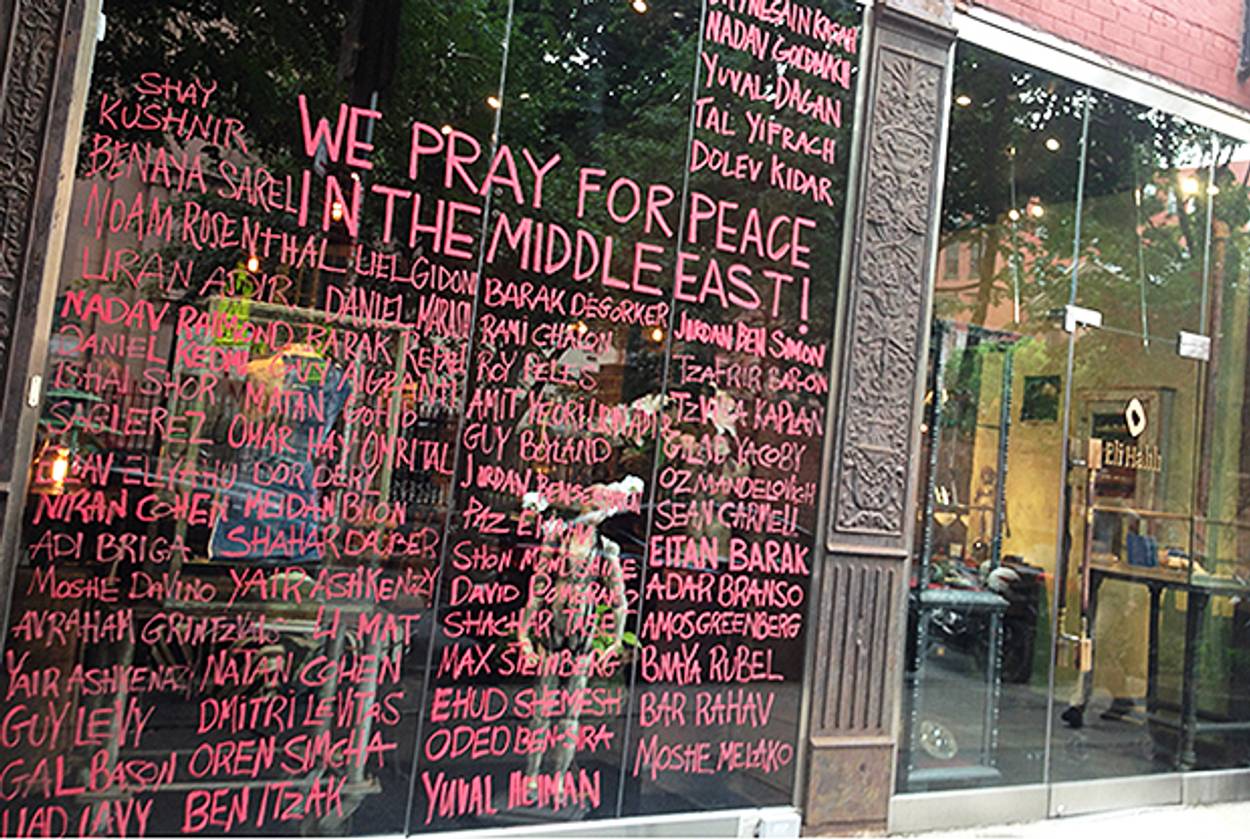NYC Jeweler’s Tribute to Slain IDF Soldiers
Boutique’s front window lists Israeli soldiers killed in recent Gaza operation




Eli Halili is a New York jewelry designer hoping to extend his impact beyond sparkling accessories. Realizing that the location of his Mott Street boutique in New York City’s trendy NoLiTa neighborhood provided the opportunity to reach a wide audience of passersby, the Israeli designer decided last week to bring attention to the war in Gaza by painting the shop’s front window with a list of the names of the Israeli soldiers killed in the conflict. The names, which by now cover the bulk of the storefront, are accompanied by the message, “We pray for peace in the Middle East!”
Halili, who was born and raised in Israel and moved to the U.S. after completing his IDF service, hopes the display, which he created with co-designer Gary Samuelian, offers the respect the fallen soldiers deserve. “Each and every single one of them represents a name, a person, a human being that I know personally did not want to go into war and did not want to get killed or kill others,” he said of the list.
“I felt that people should actually take action this time and do something, because people are being killed for no reason on both sides,” he said.
Halili said he hopes the somber list will inspire shoppers in the neighborhood to look beyond their own everyday lives and to pay more attention to the larger world. “I feel that people here just go out and hang out and do things during the day and they don’t necessarily think about what other people go through during their daily lives,” he said. “You don’t just walk the street in New York and go shop. You have to realize that something’s happening somewhere and we have to do something about it.”
The reaction to the display has been largely positive, Halili said. “People were passing by, taking photos, sending kisses by the window, clapping. There’s been a really good response.”
As far as being a call to action, though, Halili’s display has mostly inspired passersby to share photos of the shop window on social media—which Halili optimistically described as “one of the best tools these days.”
“Even if I affected 10 people just walking by the street and taking a photo and posting it, I did something,” he said.
The display has also sparked some more personal connections, too. Halili said in the past week, “Israelis came by and they felt as if they recognized a place where they feel at home.”
Isabel Fattal, a former intern at Tablet Magazine, attends Wesleyan University.